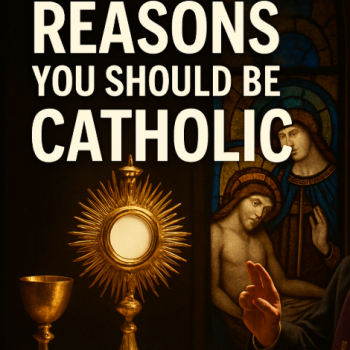I discovered John DeRosa while watching Joe Heschmeyer’s debate debrief after his discussion with Dr. James White. Joe recommended John’s Classical Theism Podcast, which eventually led me to DeRosa’s book, One Less God Than You: How to Answer the Slogans, Clichés, and Fallacies That Atheists Use to Challenge Your Faith (Catholic Answers, 2020). After reading it, I decided to write a review and highlight some popular atheist arguments DeRosa addresses. I welcome any comments on DeRosa’s responses to these challenges.
The Reason for This Book
In the introduction, DeRosa explains why he wrote the book.
Many skeptical slogans have led others to doubt their religious beliefs. But although the slogans have surface-level plausibility, I will show that they do not stand up to scrutiny.
Some of the key “slogans” DeRosa addresses include:
- “There is no evidence for God’s existence.”
- “I just believe in one God less than you.”
- “If a loving God existed, his presence would be obvious.”
- “The God of the Bible is an evil maniac who commits atrocities.”
- “Religious belief is silly, childish, wishful thinking, an invention to quell our fear of death, a crutch, and/or an opiate of the masses.”
- “The Bible supports slavery.”
- “If everything has a cause, God has a cause.”
These examples reflect only seven of the twenty slogans DeRosa tackles. To address them effectively, he recommends five principles for engaging with atheists:
- Pray.
- Ask questions.
- Don’t let people get away with vagueness.
- Focus on those who are already open to the truth.
- Engage with kindness in all dialogues.
DeRosa also suggests asking three key questions when communicating with atheists:
- “What did you mean by that?”
- “How did you come to that conclusion?”
- “Have you ever considered…?”
Unlike many apologetic books, this one doesn’t just provide answers — it teaches methods and tactics for productive dialogue.
“I Just Believe in One God Less Than You”
I chose this slogan because it serves double duty as the book’s title. DeRosa cites Richard Dawkins’ book Outgrowing God as the best reflection of this idea:
I don’t believe in any of the hundreds and hundreds of sky gods, river gods, sea gods, sun gods, star gods, moon gods, weather gods, fire gods, forest gods… So many gods to not believe in. And I don’t believe in Yahweh, the God of the Jews. But it’s quite likely you do if you were brought up a Jew, a Christian, or a Muslim.
To start, DeRosa asks probing questions to uncover the intent behind this slogan:
- “Do you think all those gods are the same? If so, can you explain more?”
- “What do you mean by ‘god’?”
He then offers several rebuttals:
- A lack of evidence for some gods doesn’t mean there is no evidence for any gods.
- The God of classical theism differs from the finite, mutable gods of other religions.
DeRosa follows up with thought-provoking questions like:
- “Does the existence of counterfeit money mean there’s no real money?”
- “Have you considered that creation points to a creator even if he’s been misidentified or misunderstood in other contexts?”
“The Bible Supports Slavery”
The claim that the Bible supports slavery ranks among the most serious modern critiques of theism. Critics argue that since the Bible doesn’t condemn slavery as modern secularists do, it reflects an immoral moral code inconsistent with a perfect God.
As with other slogans, DeRosa starts by asking a question:
- “Have you considered that the word slave or servant can be understood in several ways?”
He then explains that slavery in the Bible differs from the chattel slavery experienced by Africans abducted in the 19th century:
- Old Testament “slaves” could not be forced into labor through kidnapping.
- Slavery in the Bible resembled indentured servitude, often used to escape poverty or pay off debts.
- People sometimes sold themselves into servitude for survival.
- Regulating slavery in the Bible does not mean endorsing it.
Finally, DeRosa highlights that ancient writers used different language and concepts, which modern readers might misunderstand.
Final Thoughts…
John DeRosa’s book provides valuable tools for countering popular atheist slogans. He doesn’t just offer arguments; he teaches how to engage in meaningful dialogue with truth seekers. If you want to sharpen your apologetics skills, add this book to your shelf or Kindle library (as I did).
Rating: 5 out of 5 stars
Thank you!
If you liked this article, please leave your comments below. I am very interested in your opinion on this topic.
Read The Latin Right’s other writing here.
Please visit my Facebook page and IM your questions (and follow my page) or topics for articles you would like covered.
Also, please subscribe my YouTube page for updates on upcoming articles.

















